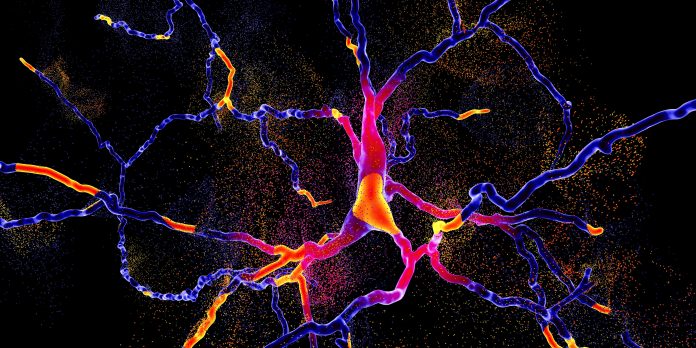
MeiraGTx has announced that its gene therapy (AAV-GAD) for Parkinson’s disease has passed a midphase trial and they are in discussion with regulators about Phase III. A small study (MGT-GAD-025) of patients receiving the highest dose of the drug showed significant improvement in their Parkinson’s Disease Questionnaire (PDQ-39) score at 26 weeks. AAV-GAD was safe and well tolerated, with no serious adverse events (SAEs) related to treatment.
“These safety and outcome results are excellent. The extent of motor score improvements in patients who received the high dose treatment combined with significant quality of life improvement measures are very encouraging for both patients and physicians,” said Ali Rezai, MD, executive chair of the Rockefeller Neuroscience Institute at West Virginia University (WVU), and principal investigator of the AAV-GAD study.
MGT-GAD-025 is a six-month study using participants with idiopathic Parkinson’s disease, a history of levodopa responsiveness for at least 12 months, and a Unified Parkinson’s Disease Rating Scale (UPDRS) Part 3 score of ≥25 points. Levodopa is the only drug that can improve Parkinson’s symptoms, but its effects tend to wear out.
Fourteen subjects were randomized to one of three groups (high dose n=5, low dose n=5, and sham n=4). Subjects patients received either AAV-GAD infused bilaterally into the subthalamic nucleus or a sham procedure.
At Week 26, a statistically significant 18-point average improvement from baseline in UPDRS Part 3 “off” medication score was demonstrated in the high dose group (p=0.03), with no significant change in the sham or low dose groups. In the high dose AAV-GAD group, the PDQ-39 score improved by 8 points from baseline (p=0.02), the low dose group improved by 6 points from baseline (p=0.04), while there was a 0.2 point worsening in the sham surgery group.
A dose response in PDQ-39 score was also observed. 100% of participants in the high dose group, 60% of participants in the low dose group, and 25% of participants in the sham surgery group reported an improvement.
Parkinson’s disease is the second most common neurodegenerative disease after Alzheimer’s, with nearly one million people in the U.S. currently affected by the disease and approximately 90,000 new patients diagnosed annually in the U.S. There are more than 10 million people worldwide currently living with PD.
“With material made using our proprietary production process at commercial scale, we have demonstrated that AAV-GAD is safe at all doses studied, including a higher dose than previously tested. We have now treated a total of 58 patients in this development program in 3 independent multicenter clinical studies and have seen no SAEs related to AAV-GAD treatment,” said Alexandria Forbes, PhD, president and chief executive officer of MeiraGTx.
The cause of Parkinson’s disease in most patients is unknown. But a small percentage have a known genetic cause, and, in all cases, there is dysfunction of the key circuits that control movement. AAV-GAD is designed to reprogram these dysfunctional brain circuits through the local production of GABA, a chemical neurotransmitter that can help restore more normal activity to these critical cells in any form of Parkinson’s.





